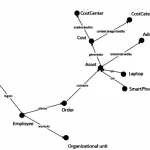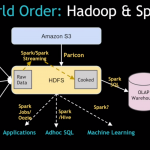Apocalypse for online search? Here’s how marketers can thrive
Disruptions bring big opportunities for marketers to stand out from the crowd.

When Google launched in 1998, the big knock against it was that it would be excruciatingly difficult to monetize the traffic because all search traffic would be sent off of Google. The theory was that the company needed to be like Yahoo or Lycos — to have a wide-ranging portal. But Google scoffed at the conventional wisdom and instead crafted its AdWords program in late 2000.
By the following year, the company turned profitable and went on to radically change advertising. Seventeen years later, online search remains the dominant player in the online ad market, accounting for half of all digital advertising.
Yet it certainly helps that the industry has continued to innovate and evolve. Consider that US mobile search accounts for almost 60 percent of overall search volume. There have also been great strides in voice-activated search. comScore predicts half of all searches to occur via voice by 2020.
Given all of this, it is wise to consider that the online search market could be ripe for disruption. Most people today spend their time on social media sites and video streaming platforms like Netflix. So it is not a stretch to see them on their favorite sites or apps when looking for something to buy, especially in light of the tidal shifts of mobile, video and AI.
Facebook’s David Marcus highlighted this point at this year’s F8 concert when he said, “When you come to think of it, Messenger has become the de facto Yellow Pages without having any phone numbers. We have a shot [at] becoming the Yellow Pages of messaging, too.” Similarly, chatbots have the potential to become a strong alternative search channel.
So, what can marketers do today to deal with these changes? How should search advertising strategy adapt to the future? I believe there are a few key things that all brands should be doing to diversify their search marketing efforts.
Consider increasing on in-site search advertising
There’s little doubt that Google’s search ad products remain highly effective. But great performance is not exclusive to the internet behemoth, as seen with the sticky apps and retailer sites that shoppers frequent regularly.
With more time spent on mobile devices, publishers and retailers are leveraging the limited space available to promote sponsored listings. It’s a win-win for publishers to monetize their site’s search real estate and for advertisers to promote their products “above the digital fold.”
In highly competitive retail categories like electronics, for example, being the first laptop to be seen on Best Buy’s site, or the first hotel featured for a traveler’s upcoming trip on a travel aggregator site, means moving to the top of a shopper’s purchase consideration and motivating a sale. Marketers need to identify the sites with the biggest opportunity to drive conversions and invest in ads that are not only relevant to the shopper, but to the context being shopped.
Gain experience with the Internet of Things (IoT)
This is the year that Amazon’s Echo (and Dot and Dash buttons) hit critical mass. Other platforms, like Apple, Microsoft and Google, also are competing to connect with shoppers inside their homes. While all these systems are a form of search, there are still some important differences. After all, an IoT device will not provide a long list of items to buy. If anything, an Echo or Dot may essentially be programmed to focus on what you have already purchased. In other words, the more experience brands have with this type of performance marketing, the more likely they are to command the lead when voice-triggered ads for products on specific retailer sites appear.
Make the most of every query
The level of competition today in certain product categories means marketers need a sharper edge than ranking in the top five results for product-specific searches. This is where machine learning and personalization have the potential to level the playing field for marketers — by using more predictive search technology, paid search marketers can move the right types of inventory and re-engage high-value shoppers proactively.
Search habits vary widely from person to person, and overarching trends will continue to develop in ways that we might not be able to anticipate today. But by diversifying their approach to search, smart marketers will be prepared for emerging technologies and inevitable shifts in online behavior that can change their business overnight.
Marketing Land – Internet Marketing News, Strategies & Tips
(35)














